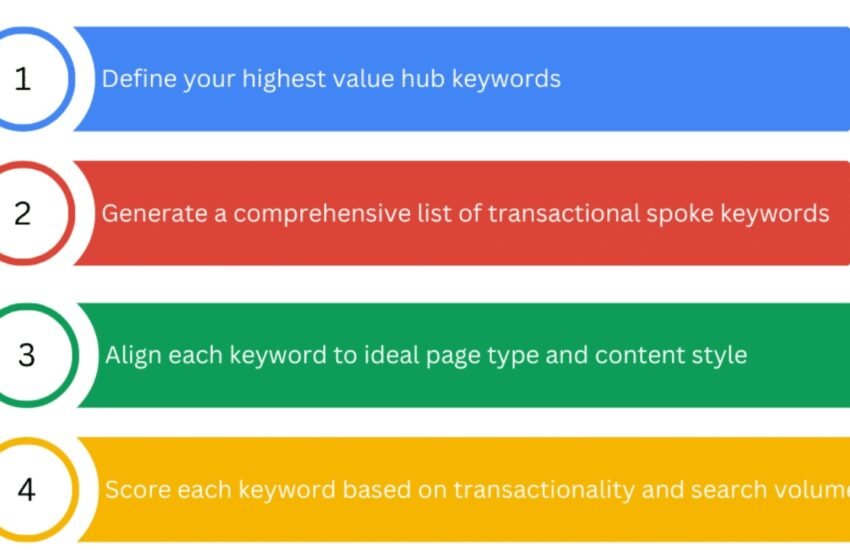In today’s competitive digital landscape, a strong keyword strategy is essential for achieving visibility and driving traffic to your website. Whether you’re a seasoned marketer or just starting out, understanding how to implement the right keywords can make a significant difference in your site’s SEO performance. The right keyword strategy examples can help you target the right audience, increase your ranking on search engine results pages (SERPs), and ultimately improve conversions. But how do you create a keyword strategy that works? Let’s explore effective examples and best practices that can elevate your SEO efforts.
The Fundamentals of Keyword Strategy
Before diving into specific keyword strategy examples, it’s important to understand what makes a keyword strategy successful. A well-thought-out keyword strategy aligns your content with what your audience is searching for. Keyword research, selection, and implementation are the key pillars of this strategy.
Keyword Research: The Foundation of Your Strategy
Keyword research is the first step in any SEO strategy. Without a clear understanding of the search terms your target audience is using, it’s almost impossible to rank effectively. Begin by identifying the primary keywords that relate to your business or website’s offerings. These are typically short, high-volume search terms.
However, focusing solely on high-volume keywords can be detrimental. As competition for these terms is fierce, you might struggle to rank high. Instead, include a mix of long-tail keywords, which are longer, more specific phrases that attract less traffic but are easier to rank for. For example, “best digital marketing strategies for small businesses” is a more specific, low-competition keyword compared to “digital marketing.”
Keyword Intent: Understanding User Intent
User intent is another critical component of your keyword strategy. By aligning your keywords with the intent behind users’ searches, you ensure that your content addresses the needs of your audience. There are three main types of user intent: informational, navigational, and transactional.
- Informational intent involves users looking for answers to questions or solving problems. Keywords here could include “how to increase website traffic” or “SEO best practices.”
- Navigational intent is when users are looking for a specific site or brand. Keywords could be a brand name or a specific product.
- Transactional intent is when users are ready to make a purchase or engage with a service, like “buy organic skincare products.”
Content Relevance: Keeping It Contextual
The keywords you choose should also tie in with your content’s core theme. There’s no point in targeting keywords that aren’t relevant to what you’re offering. For instance, if you’re writing a blog post on “best keyword strategy examples,” using keywords related to social media marketing would confuse search engines and your audience.
Exploring Keyword Strategy Examples
Now that we understand the essentials, let’s take a closer look at some keyword strategy examples. These examples are designed to help you think strategically and elevate your SEO game.
Example 1: The “Pillar-Cluster” Model
The pillar-cluster model is an effective way to structure your content around primary topics and subtopics. This strategy helps organize content in a way that boosts your website’s authority in a particular subject area.
For example, if you’re in the digital marketing niche, your pillar page could be “Complete Guide to Keyword Strategy.” Under this umbrella, you could create cluster pages around specific subtopics such as “Keyword Research Tips,” “Long-Tail Keyword Strategies,” and “Using Keyword Intent in SEO.”
By linking these pages together, you create a robust internal linking structure that signals to search engines the authority and relevance of your content. It’s an example of how focusing on long-term strategy can yield consistent, high-quality results.
Example 2: Local SEO Keyword Strategy
For businesses targeting specific geographic areas, a local SEO strategy is a must. This includes incorporating location-specific keywords into your strategy. Local keywords might include the name of a city, state, or region along with your primary keyword. For example, if you run a bakery in San Francisco, you would target keywords like “best bakery in San Francisco” or “San Francisco bakery delivery.”
By using these targeted keywords in local search results, you’ll increase your chances of appearing in Google’s Local Pack and drive more foot traffic to your physical store.
Example 3: Incorporating Voice Search Keywords
As voice search continues to rise in popularity, incorporating voice search-friendly keywords into your strategy is essential. Voice search queries tend to be longer and more conversational. People are more likely to ask full questions, such as “Where can I find the best pizza in New York?” instead of just searching for “best pizza in New York.”
To optimize for voice search, focus on natural language and question-based keywords. This ensures that your content is tailored to how people ask questions verbally rather than how they type their searches.
Example 4: Targeting Featured Snippets
Featured snippets, those highlighted answer boxes that appear at the top of the search results, are a prime opportunity to gain visibility. To rank for featured snippets, your keyword strategy should include answering specific questions directly within your content.
For example, if you’re targeting the keyword “what is keyword strategy?” you could craft a section of your content that succinctly defines the concept in the form of a Q&A or list. Featured snippets are designed to give users an immediate answer, and your content can be the one that appears if optimized correctly.
Expert Insight: The Importance of Data-Driven Keyword Strategy
To further understand the power of a well-executed keyword strategy, consider the words of Neil Patel, a leading expert in digital marketing:
“Keyword strategy is about understanding the evolving needs of your audience. As search behavior shifts, your strategy should be adaptable, constantly informed by data, and grounded in user intent. The goal is not just to rank higher but to provide the best possible answer to your audience’s questions.” – Neil Patel, Marketing Expert.
This quote underscores the importance of staying agile and data-driven in your approach. A static strategy won’t yield sustainable results, so consistently monitor and tweak your keyword strategy for better outcomes.
Measuring the Success of Your Keyword Strategy
Once you’ve implemented your keyword strategy, the next step is measuring its success. This can be done using various SEO tools such as Google Analytics, SEMrush, or Ahrefs. Key metrics to monitor include:
- Organic traffic: Are more visitors coming to your site as a result of your targeted keywords?
- Keyword rankings: Has your position for targeted keywords improved on search engine results pages?
- Click-through rates (CTR): Are users clicking on your content when it appears in search results?
By regularly assessing these metrics, you can adjust your strategy as needed to keep improving.
Conclusion: Optimizing Your Way to SEO Success
A well-executed keyword strategy is a game changer for any SEO campaign. By following proven keyword strategy examples and tailoring your approach based on audience intent and data insights, you position yourself for long-term success. Whether you’re targeting specific keywords, optimizing for voice search, or experimenting with the pillar-cluster model, there’s no one-size-fits-all solution.
The key to success lies in consistently refining your strategy and staying informed about evolving search behaviors. So, start by researching your keywords, developing a strategic plan, and tracking your results. Over time, your efforts will yield a site that ranks higher, attracts more traffic, and drives conversions.Remember, SEO isn’t just about keywords; it’s about delivering relevant, valuable content that answers your audience’s needs. Keep that focus, and your keyword strategy will drive success.
you may also read
Technical SEO Audit: Unlock Your Website’s Full Potential



